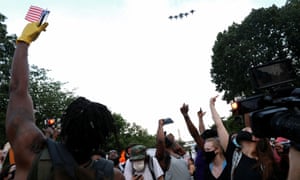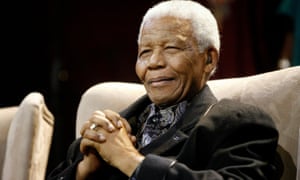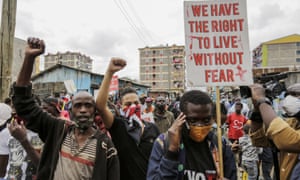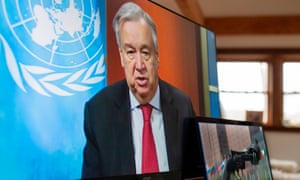Extract from The Guardian
António Guterres uses Mandela lecture to call for radical shake-up of IMF and World Bank in wake of coronavirus pandemic
The UN secretary general will today deliver one of his most stinging
speeches to date, attacking the “myths, delusions and falsehoods” around
international progress on equality.
In an unusually strongly worded speech, António Guterres urged major reform to the UN security council, the International Monetary Fund and the World Bank, to address systemic inequalities exposed by the coronavirus pandemic.
The health crisis had revealed the world’s fragility and “laid bare risks we have ignored for decades: inadequate health systems; gaps in social protection; structural inequalities; environmental degradation; the climate crisis”, he said.
He said the pandemic was exposing “fallacies and falsehoods everywhere: the lie that free markets can deliver healthcare for all. The fiction that unpaid care work is not work, the delusion that we live in a post-racist world, the myth that we are all in the same boat.”
The anger of the #MeToo and Black Lives Matter movements were a measure of “utter disillusionment with the status quo”, Guterres said, while colonialism and patriarchy were historical sources of inequality.

In an unusually strongly worded speech, António Guterres urged major reform to the UN security council, the International Monetary Fund and the World Bank, to address systemic inequalities exposed by the coronavirus pandemic.
The health crisis had revealed the world’s fragility and “laid bare risks we have ignored for decades: inadequate health systems; gaps in social protection; structural inequalities; environmental degradation; the climate crisis”, he said.
He said the pandemic was exposing “fallacies and falsehoods everywhere: the lie that free markets can deliver healthcare for all. The fiction that unpaid care work is not work, the delusion that we live in a post-racist world, the myth that we are all in the same boat.”
The anger of the #MeToo and Black Lives Matter movements were a measure of “utter disillusionment with the status quo”, Guterres said, while colonialism and patriarchy were historical sources of inequality.

Speaking from the UN’s New York headquarters, Guterres was delivering the annual Nelson Mandela lecture – on what would have been Mandela’s 102nd birthday –, to an online audience for the first time in its 18-year history.
Africa, Guterres said, had been a “double victim”, first because of colonialism and second, because African countries were underrepresented in the international institutions set up after the second world war.

His comments follow those of the UN’s outgoing special rapporteur on extreme poverty and human rights, Philip Alston, who described the World Bank’s $1.90 (£1.50) a day international poverty line as a “scandalously unambitious benchmark” that had painted a false picture of “heroic gains” against poverty.
Guterres said the world had been brought to its knees by a microscopic virus that had set back progress on eradicating poverty and narrowing inequality by years. He warned that it could bring famines of “historic proportion” and push 100 million people into extreme poverty.
“We face the deepest global recession since world war two, and the broadest collapse in incomes since 1870,” he said. Workers in the informal economy, small and medium businesses, and people with caring responsibilities, mostly women, had been hit worst.
“Deep disparities begin before birth, and define lives – and early deaths,” he said.

“Even more shocking: some 17% of the children born 20 years ago in countries with low human development have already died.”
Everyone suffered the consequences, he said, because inequality was linked to economic instability, corruption, financial crises, crime, and physical and mental health.
Guterres said the climate crisis and digital transformation were “seismic shifts” that would define the 21st century and heralded a new movement for racial equality, human rights and the rights of future generations. Young climate activists were on the frontline, he said.
“This movement rejects inequality and division, and unites young people, civil society, the private sector, cities, regions and others behind policies for peace, our planet, justice and human rights for all. It is already making a difference.
“Now is the time for global leaders to decide: will we succumb to chaos, division and inequality? Or will we right the wrongs of the past and move forward together, for the good of all?
“We are at breaking point. But we know which side of history we are on.”


No comments:
Post a Comment